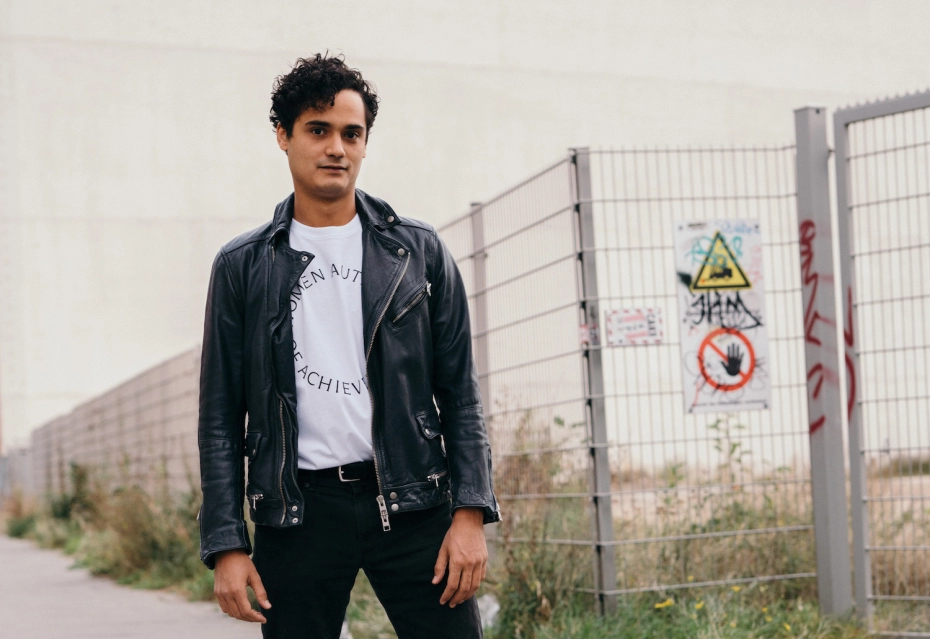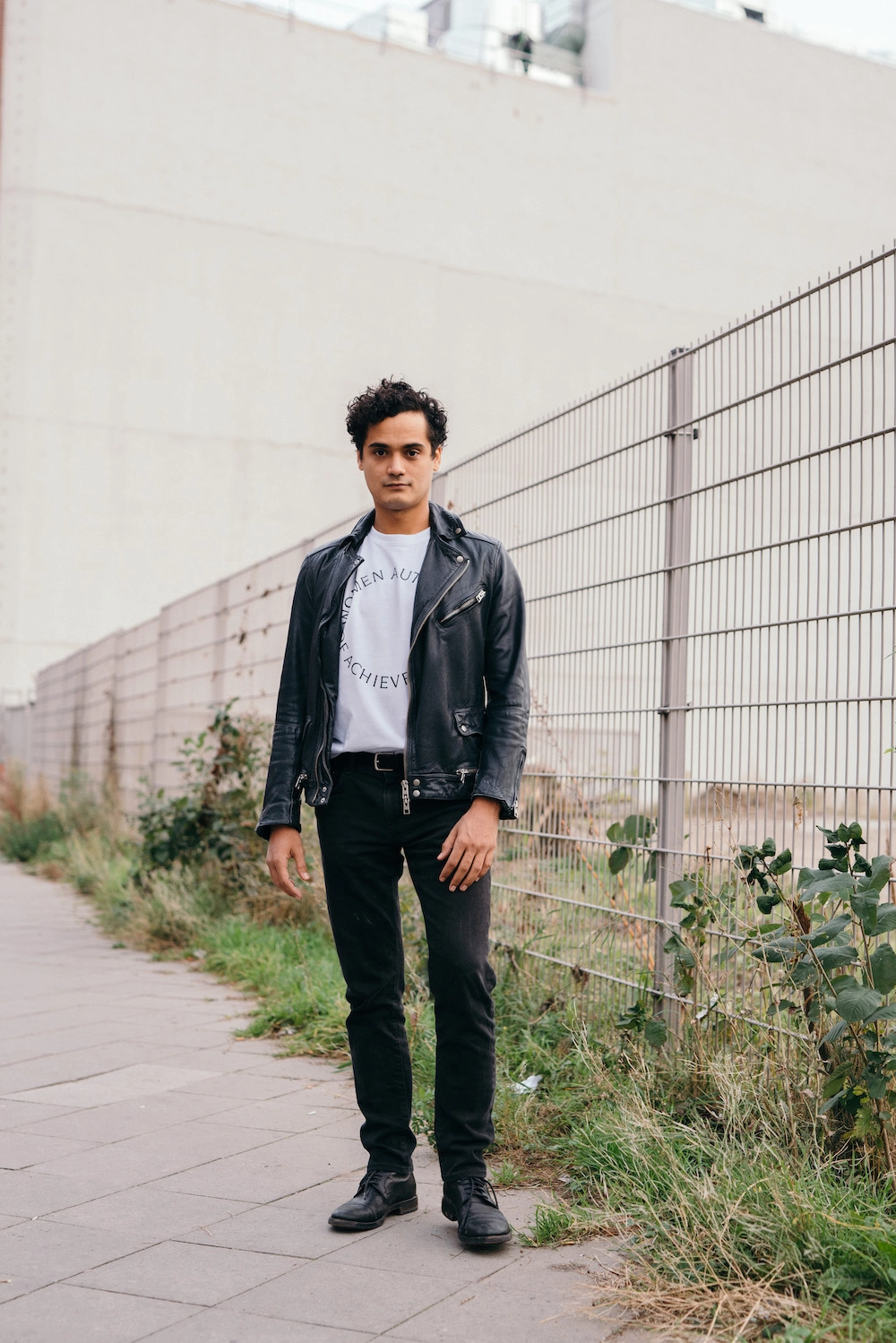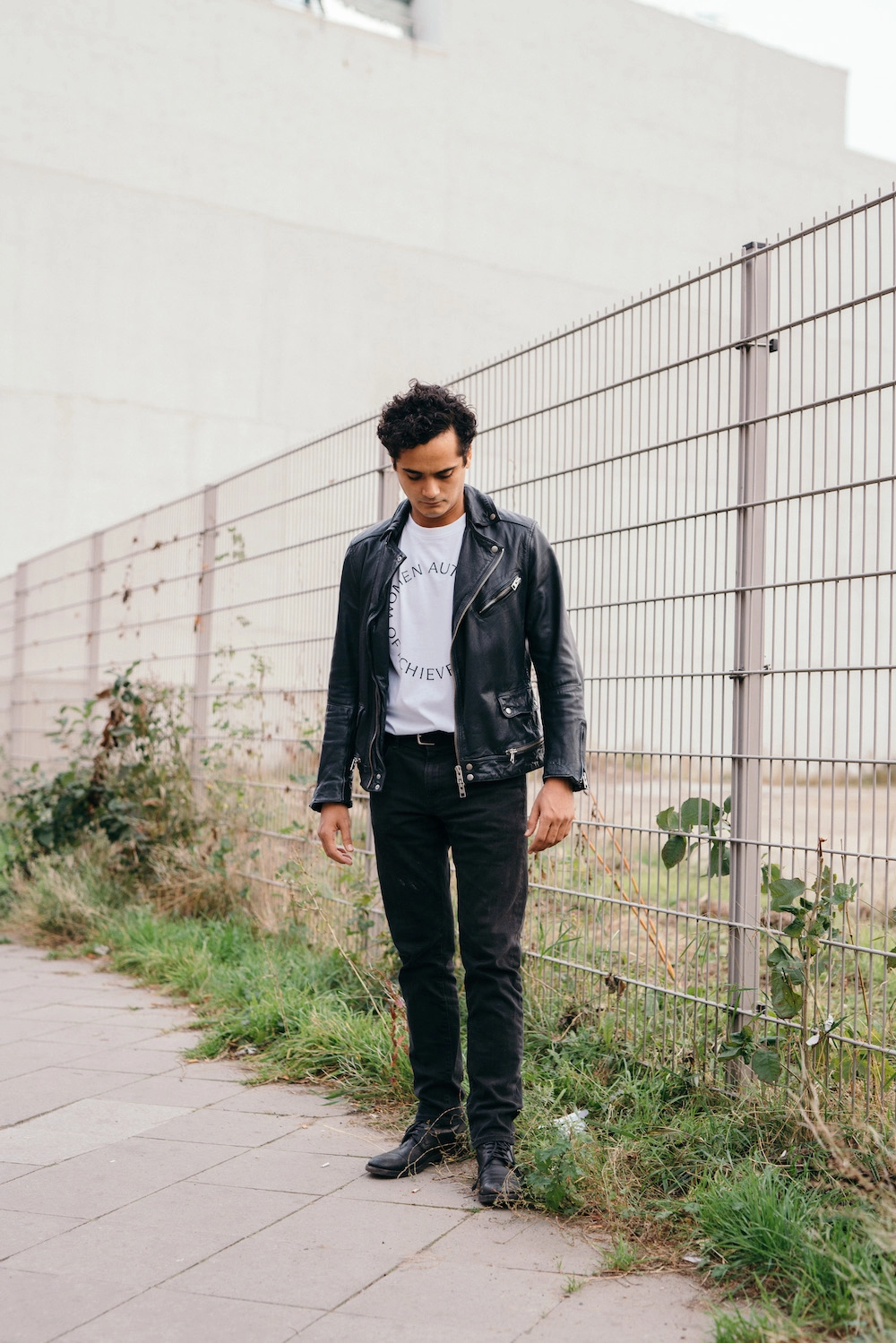Alejandro Molinari
Alejandro Molinari is a Berlin-based music producer, creating tunes for fashion brands such as Vogue, Victoria Secret, Mytheresa, La Samaritaine and working with other artists, by mixing and mastering their music and connecting them to labels. He talks to us about how music transformed him as a person, and led him all the way from Venezuela to Mexico, before he found his home and community in Berlin.

How did you decide on becoming a music producer?
It’s all the result of a feeling, a drive that always wakes me up in the morning. I knew this because there were moments in life where nothing went the way I wanted it. During this period, music was my red thread and something I never stopped doing. My friends wouldn't always understand what created that inner drive—my necessity for expression just needed to come out. You could look at it as sort of a cleansing. Eventually music transformed me as a person, and became a part of my daily life.
Do you remember your very first encounter with Berlin?
I came to Berlin as an exchange student from Venezuela when I was 15, and back then I was living with a host family in Wittenberge, a small town near Berlin. At 19 I moved to Mexico, and I would go to this new club called M.N.Roy where several artists were playing a new genre of house, techno and mexican folk all mixed into one. It was so consuming, because it was something completely new. Inspired by this, I started creating my own music and a few years later I signed my first contract to publish my EP in the Japanese Label Blindetonation before making the move to Berlin.
What role did Berlin as a city play in your growth?
I always love to come back to Berlin because I created my own temple here. And I think my personal Berlin exists out of the goals I created along the way. I'm 30 now, a new decade of my life, where the relationship to my creations takes a more serious tone. What's interesting is that at the beginning I was making music that I wasn’t able to live from but people around saw something and invested in me. Now, I can take my studio everywhere I go, my temple is where I am right now, where my instruments are, all the places I go, and where my friends are.


How did you build your community, your temple?
Everybody that comes with a proposal to Berlin somehow finds their own community or ends up creating one. I often have a new community around me, who get really into my music. And then it continuously expands. You find the people that you feel a connection to and you end up constantly feeding these exchanges, where you both share what you’re doing with each other, which can also eventually lead to collaborations.
Who would you define as your Woman Author of Achievement?
I have two women. The first one is my mother. She is literally the most hard working person I've ever met. She would teach me to just go for what I want, to be strong and achieve my dreams. She also has an impulsive power to fix people — she senses when people are in trouble from only a couple of words. The second is Anaïs Nin, a novelist from the beginning of the 20th century. She was the first woman who wrote erotic stories that would define concepts of that era. She had a very unique expression of femininity and promoted women rights.
